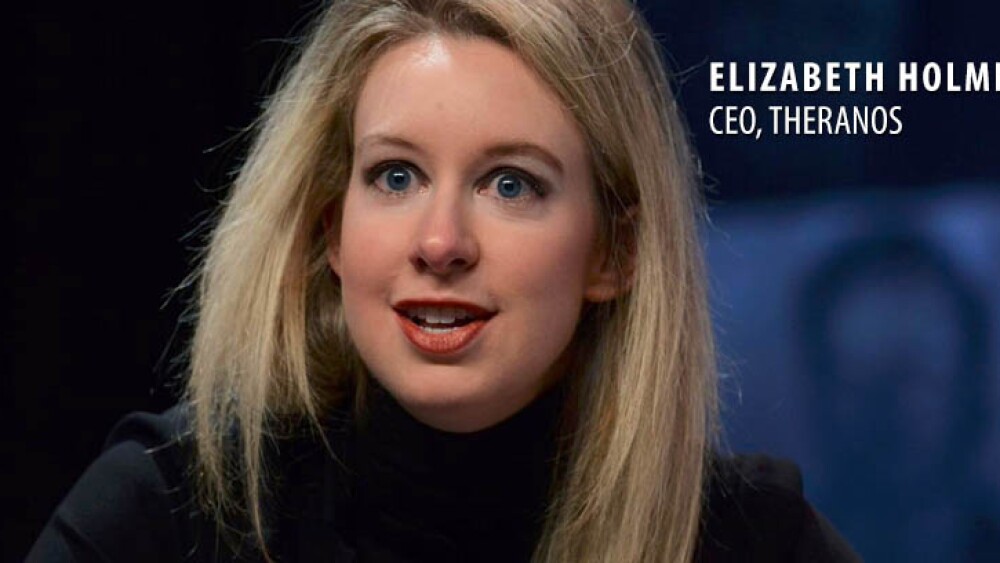May 19, 2016
By Alex Keown, BioSpace.com Breaking News Staff
PALO ALTO, Calif. – Troubled blood-testing company Theranos has invalidated two years of its test results to doctors and customers, meaning that some of the information sent could have been incorrect.
It is unknown if the company, which at one time had a value of about $9 billion, will face any legal action as a result of possible improper medical treatment from incorrect diagnosis.
The California-based company, once a darling of investors, invalidated results for 2014 and 2015 and has issued “tens of thousands” of corrected blood testing results to patients and doctors, the Wall Street Journal first reported. The company told federal regulators with the U.S. Center for Medicare and Medicaid Services about their decision to void the test results for the two-year period.
Following an initial and excoriating review of Theranos’ Newark, Calif. laboratory, Theranos said it had “voided results associated with any findings that were not consistent with the quality standards the lab holds itself to today, under our lab’s new leadership.” At the time Theranos announced this measure, the concept of two years of data being tossed out was unfathomed.
The Journal reported that many of the corrected results sent to the patients and doctors were not performed on Theranos’ proprietary Edison blood-testing machine, but were done on traditional laboratory machines. Theranos’ Edison machines were one called revolutionary and supposedly able to determine a number of medical diagnostic questions based on a single drop of blood. However, the efficacy of the blood testing devices have been called into question a number of times over the past year. In April, the U.S. Department of Justice launched a criminal investigation into the company, with investigations centering on whether Theranos and its executives misled investors as to the efficacy of its blood-testing products.
News of a criminal investigation comes less than a week after reports revealed that Holmes could face a possible federally-mandated two-year suspension from the blood testing industry over failures to address deficiencies at lab facilities in California.
Brooke Buchanan, Theranos’ vice president of communications, told Bloomberg the top priorities of the Silicon Valley-based company are excellence in quality and patient safety.
“We’ve taken comprehensive corrective measures to address the issues CMS raised in their observations,” Buchanan told Bloomberg. She did not elaborate, adding that the matters are under further review.
In a lightly redacted 45-page letter dated March 18 over those concerns, the CMMS repeatedly used the bold-texted phrase “The laboratory’s allegation of compliance is not credible and the evidence of correction is not acceptable.” The phrase is used to indicate how Theranos’ failed to meet federal Clinical Laboratory Improvement Amendments (CLIA) guidelines. While many of the errors could be considered minor, the overwhelming number is concerning—something CMMS investigators noted in their letter.
“In general, we find that the statements made in the allegation of compliance and evidence of correction: 1) failed to adequately address the deficient practice cited; 2) are incomplete and failed to meet the criteria of acceptable evidence of correction; 3) do not ensure sustained compliance; and 4) show a lack of understanding of the CLIA requirements,” the letter said.
Sunny Balwani, president and chief operations officer of Theranos resigned his role with the company weeks after he and founder Elizabeth Holmes learned they faced a possible federally-mandated two-year suspension from the blood testing industry over failures to address deficiencies at lab facilities in California.
Buchanan told BioSpace that Balwani’s departure had been planned for some time as the company shifts into a restructuring plan where the company will have “focuses on both the R&D and clinical lab.” Theranos also said it was undertaking a restructuring of its organizational leadership with dedicated corporate divisions for technology and clinical operations. In another move, Theranos added three new members to its board of directors with a wealth of scientific experience.





